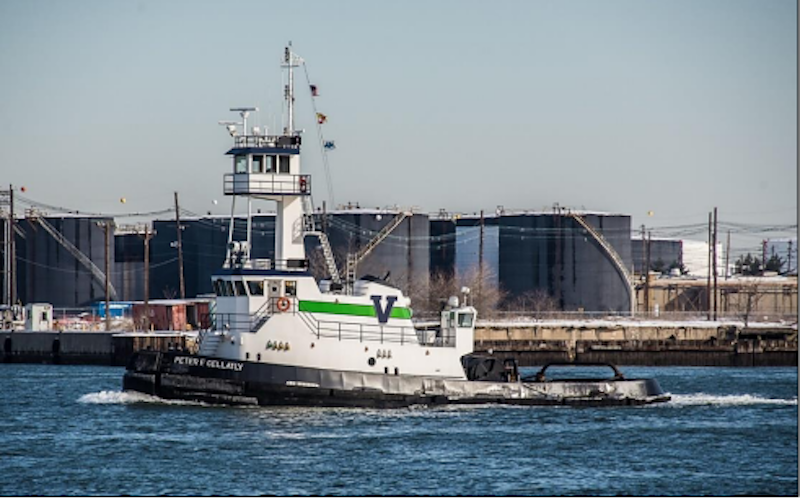During the Tugs and Coastal Towing Program at the International WorkBoat Show in November, Capt. Eric Johansson, a professor and inland towing specialist at the State University of New York Maritime College, discussed a curious decision by the National Transportation Safety Board (NTSB) regarding a towing vessel accident on the Mississippi River in 2017.
Investigators determined in a report released in October that the probable cause of the allision of the Cooperative Venture towing vessel with the St. Paul Union Bridge in Minnesota was “the operating company’s assignment of an inexperienced pilot who incorrectly positioned the tow prior to maneuvering through a turn with a following current when approaching the bridge span.”
The Cooperative Venture was traveling southbound on the river with a 17-barge tow and a crew of 10 when it hit the bridge. This made Johannson take pause. In all the years that he’s studied towing vessel accidents, he’s never seen the NTSB place probable cause on a vessel’s operating company. He cited numerous other NTSB rulings that faulted the captain or another individual on the vessel, not the company.
For example, in the 2015 allision of the tug Peter F. Gellatly with a pier in Bayonne, N.J., which caused $2.7 million in damages and fuel oil discharge into the waterway, the NTSB found probable cause to be poor communication between the captain and engineer.
In 2013, the Bayou Lady was pushing six empty hopper barges to a scrap yard in Morgan City, La., when the barge struck a bridge near Houma, La. The NTSB said probable cause was the “decision of the captain to transit the bridge opening in windy conditions.”
Johansson thought the Cooperative Venture decision was especially interesting since the new federal towing vessel inspection program, Subchapter M, which went into effect in July, states that the master is responsible for the safe operation of the vessel.
The NTSB rulings have “gone from master to management, so will the next step be the owner?” he asked. “I just found it striking. I don’t know if anyone else sees it that way. I may be off on this, but it seems like a big shift and it’s shifted very quickly.”
It’s not clear what this might mean for towing companies, but Johansson said it could cause them to “think twice about how they are preparing or vetting their crewmembers to be on a vessel.”





.jpg.small.400x400.jpg)